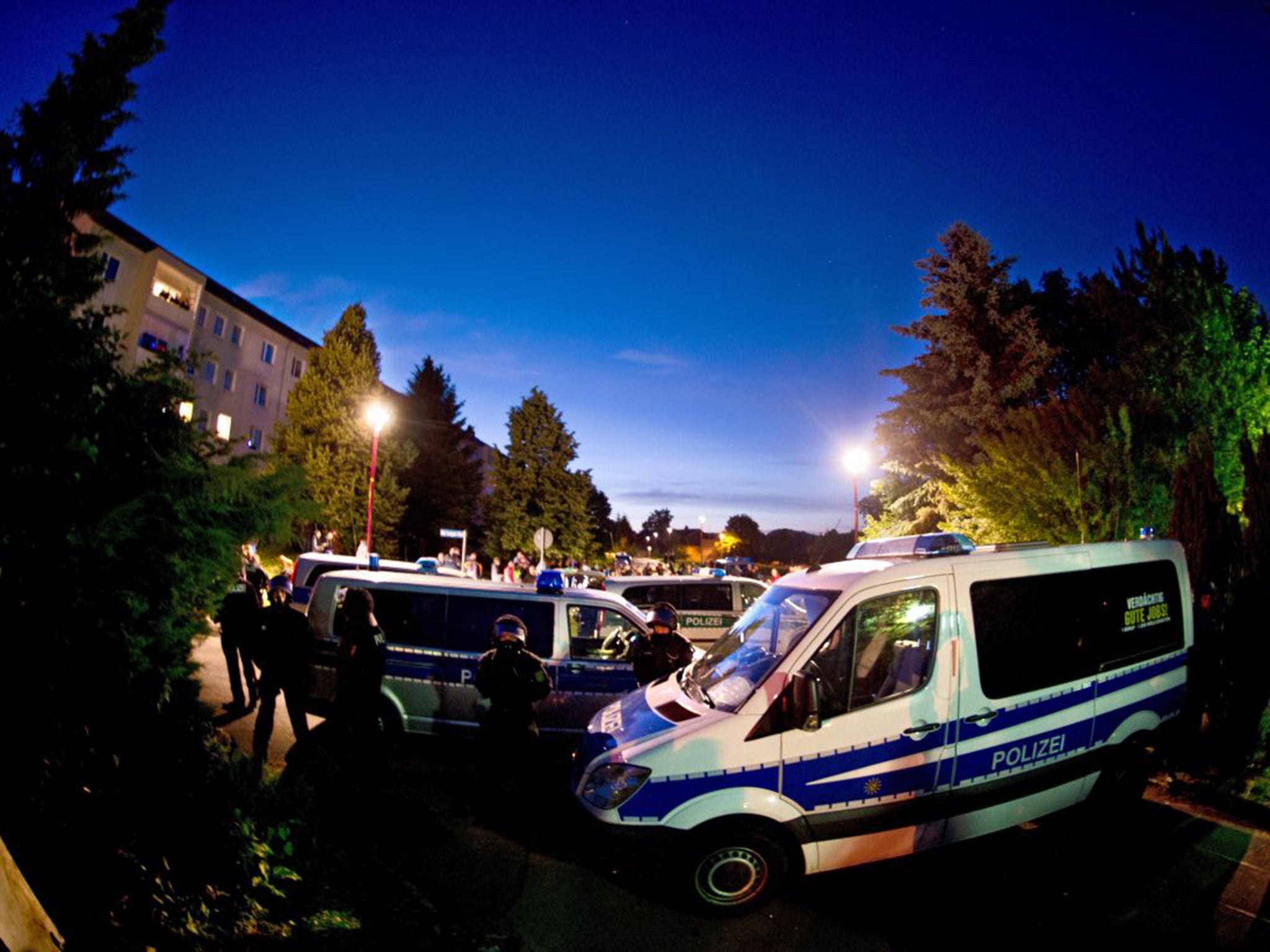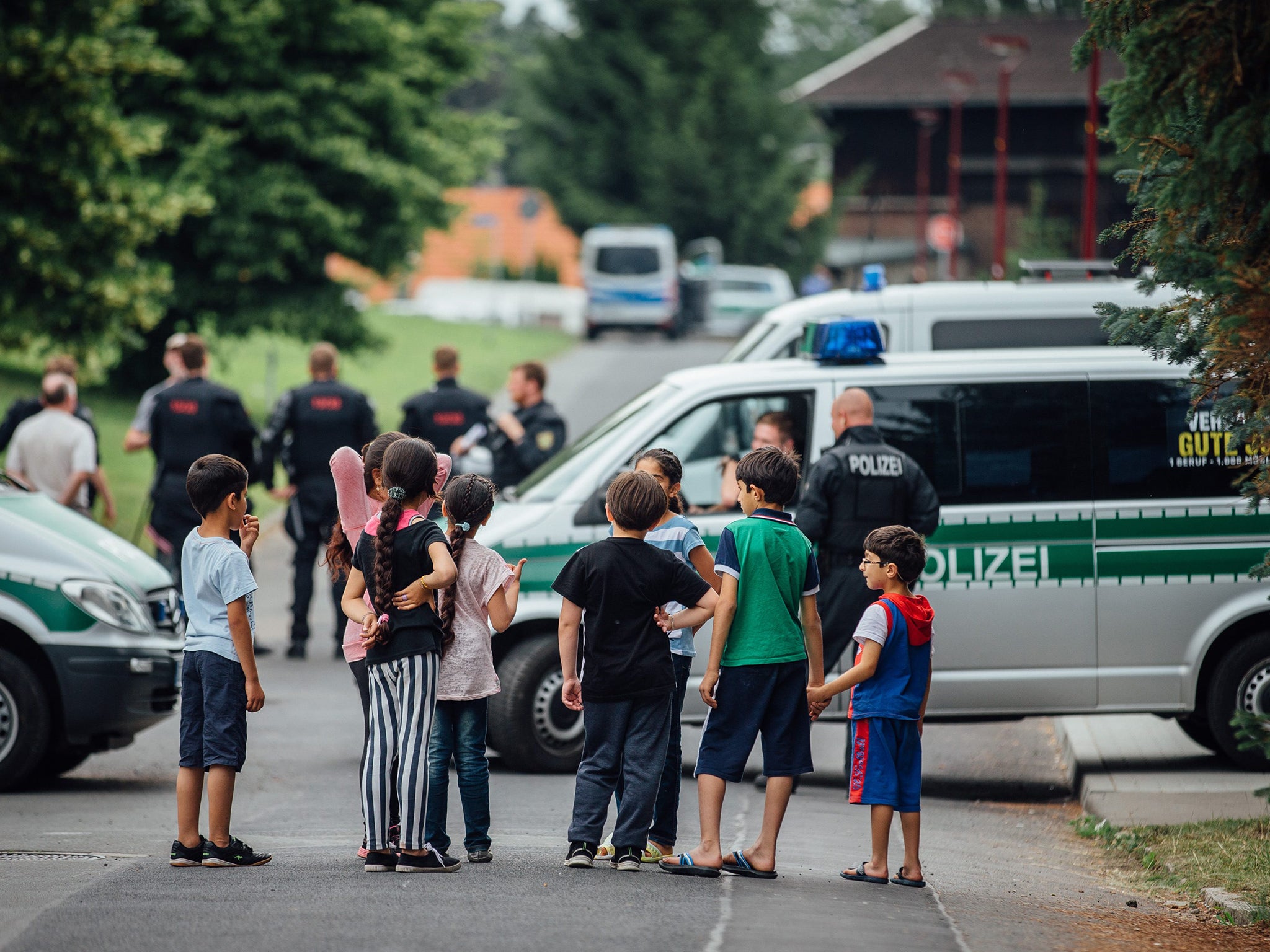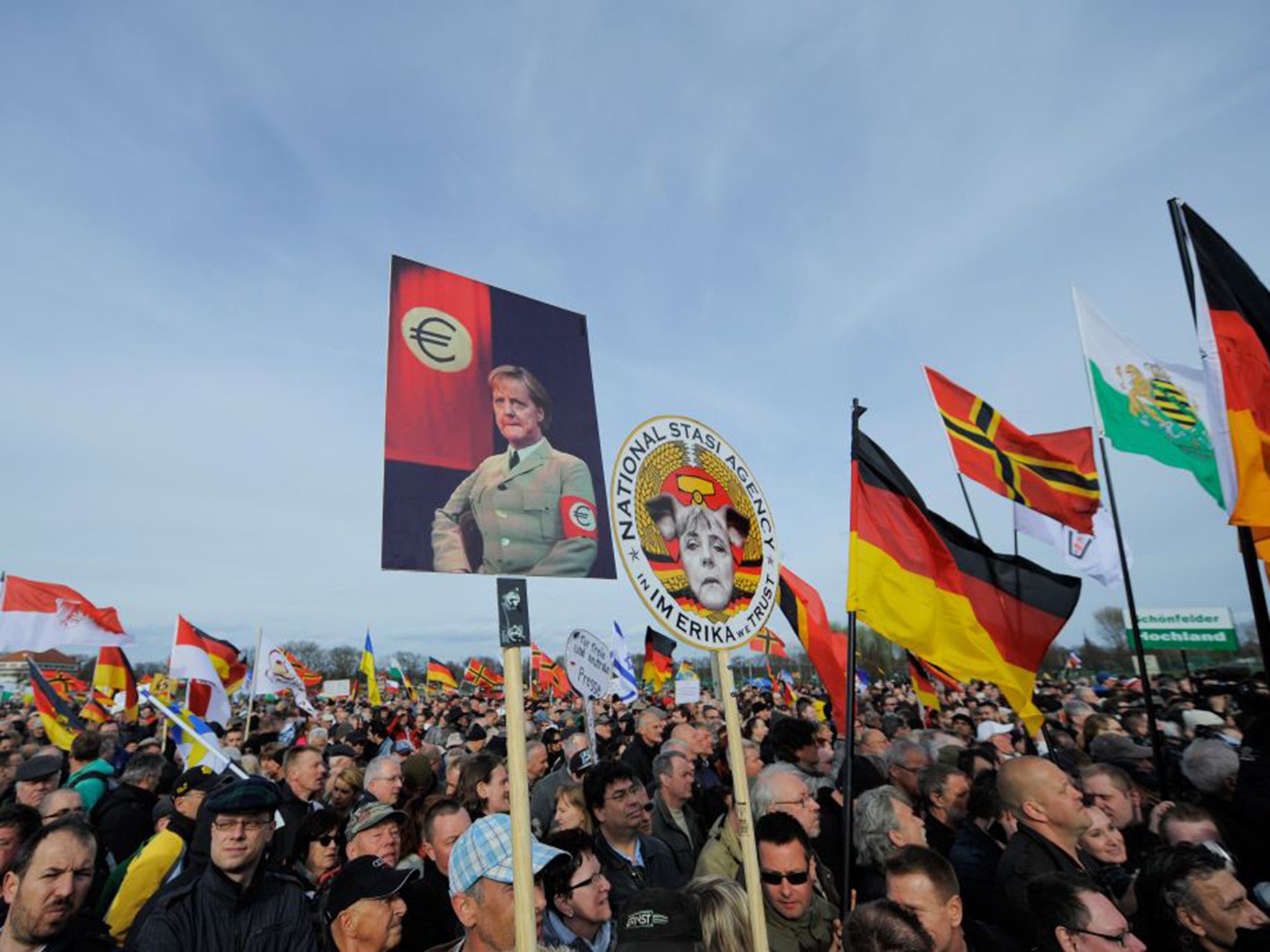Neo-Nazis lay siege to asylum-seekers hostel in Freital as race hate rears its ugly head once again in east Germany
A small town has witnessed ugly scenes as neo-Nazis besiege the Hotel Leonardo, an illustration of the country’s mounting xenophobia

Your support helps us to tell the story
From reproductive rights to climate change to Big Tech, The Independent is on the ground when the story is developing. Whether it's investigating the financials of Elon Musk's pro-Trump PAC or producing our latest documentary, 'The A Word', which shines a light on the American women fighting for reproductive rights, we know how important it is to parse out the facts from the messaging.
At such a critical moment in US history, we need reporters on the ground. Your donation allows us to keep sending journalists to speak to both sides of the story.
The Independent is trusted by Americans across the entire political spectrum. And unlike many other quality news outlets, we choose not to lock Americans out of our reporting and analysis with paywalls. We believe quality journalism should be available to everyone, paid for by those who can afford it.
Your support makes all the difference.Once a model Social Democrat community where the poor in Germany’s Weimar Republic found help and support, the small town of Freital, just south of Dresden, has become a byword for German racism and intolerance.
Its target is Hotel Leonardo, or rather, the 300 or so asylum-seekers who are now virtual prisoners in the former conference hotel. Thanks to local hostility the building is under a round-the-clock police guard and surrounded by a 10ft-high wire fence. Police patrol cars have blocked off access roads.
Twenty nine-year-old Ibrahim Alalelayan, a medical student who arrived in Germany a fortnight ago after fleeing Deraa, his war-torn home town in southern Syria, says he does not try to go into Freital. “I prefer not to leave the safety of this place,” Mr Alalelayan told The Independent as he stood in the hostel lobby with other frightened refugees 9 July. “When we go out, the people from around here stare at us in a bad way. They shout things at us in German. If we go out at all we go out in groups because we are afraid,” he says.

His anxiety is justified. Since March this year the hotel has been the scene of angry anti-foreigner protests in which the rule of the lynch mob has held sway. Up to 1,200 Freital residents and neo-Nazi hangers-on have gathered outside the hostel on weekday evenings chanting slogans such as “Filth out” and “This is no place to flee to”.
The often-intoxicated mob threw eggs and shot fireworks at the hostel claiming that Freital was “defending itself”. The small groups of local refugee supporters who tried to show sympathy with the asylum-seekers had to be protected by riot police.
On 6 July, local xenophobic fury erupted again at a meeting held by the regional authorities in Freital which had been designed to defuse anger and open a reconciliation process. The meeting was abruptly brought to an end as Markus Ulbig, the region’s conservative Interior Minister, was shouted down and mob rule took control. “They are all illegals,” shouted one woman resident. “We will burn down the hostel,” screamed another. Since then an uneasy cessation of hostilities has prevailed outside Hotel Leonardo.
Freital’s abortive meeting and the mass anti-foreigner protests outside the hostel, were merely the latest outbursts of xenophobia violence to have erupted in Germany as the country struggles to accommodate an expected 400,000 refugees this year. The figure is almost double the quota Germany took in during 2014.
Accommodation marked out for asylum-seekers has been set ablaze across Germany since late last year. The most recent arson attack was carried out at a future hostel in the east German city of Meissen last week. Attacks against foreigners, predominantly in eastern Germany, have doubled since last year. In Freital alone there have been a number of incidents including an assault on an asylum-seeker, and an attempt to firebomb refugee accommodation.
Germany’s mounting xenophobia has been condemned by all political parties. Chancellor Angela Merkel and the heads of all religious organisations have denounced the phenomenon. Last week Joachim Gauck, the German President, departed from his prearranged text during a speech to a conference in Berlin and described violence as “repugnant”. He warned that “xenophobic attitudes” had hardened.
In Freital, where many say the rise of Communism in East Germany and the disenchantment that followed sparked today’s right-wing backlash, anti-foreigner feeling has been encouraged by members of the region’s Pegida (Patriotic Europeans Against Islamification of the West) movement. The group has staged mass demonstrations attracting up to 20,000 people in Dresden earlier this year. Lutz Bachmann, the Pegida leader who posed on Facebook wearing an Adolf Hitler moustache, lives nearby.
Sociologists have pointed out that before the fall of the Berlin Wall in 1990, the only foreigners seen in the region were contract workers from fellow Communist countries such as Vietnam who were forced to live apart from Germans in special hostels.
The protests against Freital’s Hotel Leonardo began when a resident called Mario Wagner launched a “No to the Home” campaign and attracted the support of more than 2,000 residents who signed his petition. The movement spread rapidly and since then copycat “No to the Home” groups have started throughout the region.

Mr Wagner lives in one of the three East German Communist-era blocks that stand opposite Hotel Leonardo. Last week groups of residents sat outside swigging beer. “They are all here to take our money. The sooner the scum clears out the better,” said one, who declined to give his name.
Ines Kummer, one of Freital’s few Green Party city councillors, said she had been threatened and shouted at by residents for showing support for the asylum-seekers. “Right-wing nationalism and anti- foreigner attitudes have taken root in this part of Germany,” she told The Independent. “Around here the established parties, like Ms Merkel’s ruling conservatives, have not condemned the prevalent racism; they chose to brush it aside. Now it’s too late.”
Join our commenting forum
Join thought-provoking conversations, follow other Independent readers and see their replies
Comments